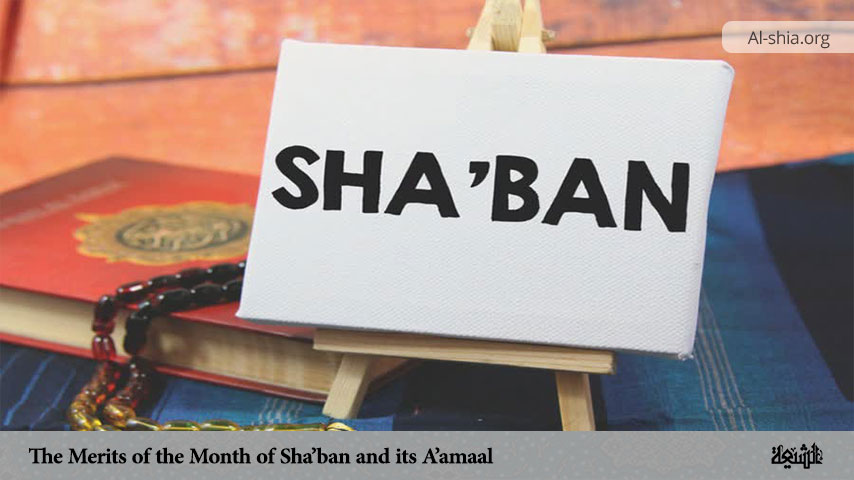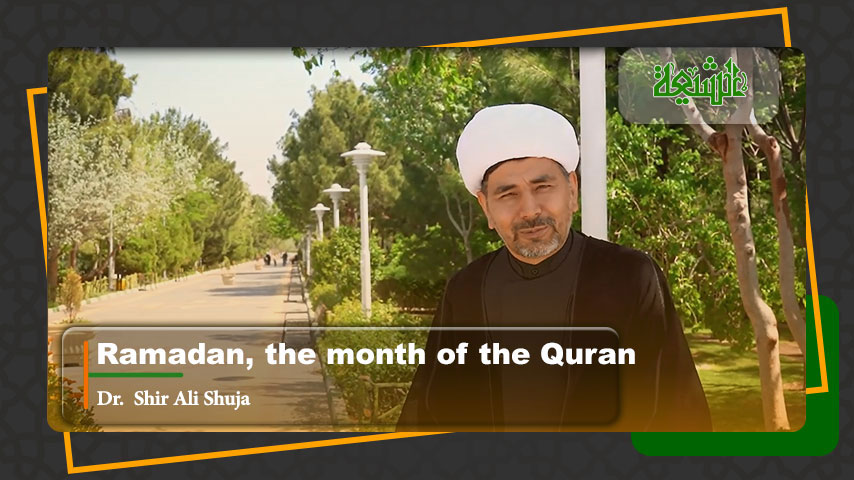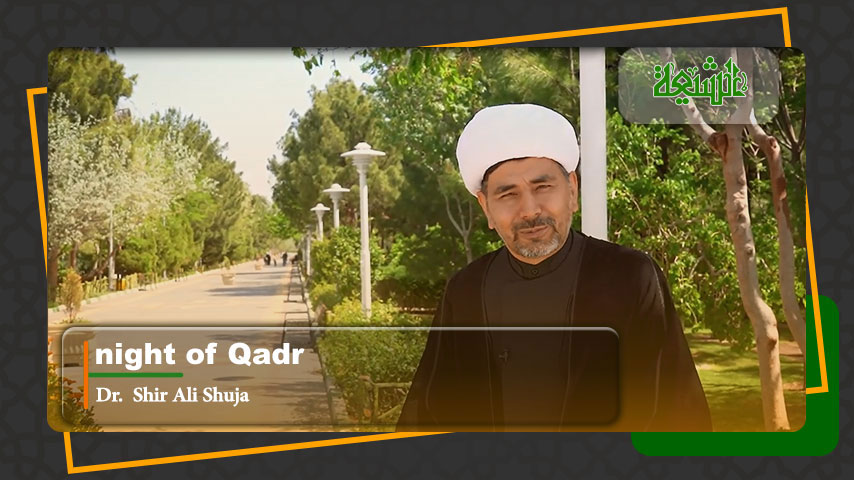Sha’ban is the eighth month in the Muslim calendar and it is the month that precedes the holy month of Ramadan where fasting is made obligatory for the believers. The month of Sha’ban is a period to gain closeness to Almighty Allah through various recommended acts of worship and it is indeed a period to adequately prepare spiritually in order to acquire the blessings and rewards in the month of Ramadan. That is to say, the superabundant favours and boundless blessings in the holy month of Ramadan could be maximally reaped by those servants who had maximally utilized the unlimited spiritual opportunities in the months of Rajab and Sha’ban (i.e., the seventh and eighth lunar months respectively). In other words, the levels of the bounties and the divine blessings to be reaped or attained in the holy month of Ramadan are related to the preparations one made for it.
According to some Prophetic traditions, it is stated that the month of Sha’ban is attributed to the Holy Prophet of Islam (PBUHH) who used to observe various supererogatory acts of worship in it. In a narration reported by Safwan Jammal, he quoted Imam Sadiq (PBUH) to have said: “… Whenever the Prophet sighted the crescent of the month of Sha’ban, he ordered somebody to call all the people, and he would say: O the people of Yathrib, I am the Messenger of Allah to you. Be aware Sha’ban is my month and may Allah bless those who help me in this month.” (Bihar al-Anwar, vol. 94, p. 71)
Based on several reliable traditions (Hadiths) narrated from the Holy Prophet (PBUHH) and his pure Household (PBUH), it is obvious that fasting is one of the meritorious acts of worship that Prophet Muhammad and his pure Ahl al-Bayt did not like to miss it in this month [1]. Meanwhile, it is pertinent to say that fasting in this month is not obligatory but highly meritorious and is meant only for those persons who are capable of observing them without causing deficiency in the obligatory fasts of Ramadan.
It is documented that the fourth Imam, Imam Ali Zain al-Abideen (PBUH) used to gather his companions at the beginning of Sha’ban and quoted the holy Prophet (PBUHH) to have said: “Sha’ban is my month”. Then he added: “You should thus fast on this month as a sign of your love for your Prophet and as a sign of seeking nearness to your Lord….” (Ibn Qayyim al-Jawziyya, Zad al-Ma’ād, p. 47)
It is reported in the authentic traditions (Hadiths) that apart from the month of Ramadan, Prophet Muhammad (PBUHH) used to fast most of the month in Sha’ban. Imam Sadiq (PBUH) was reported to have said, “The Commander of the Faithful has said, “From the moment I heard this, I have never missed fasting in the month of Sha’ban and I will not miss it InshaAllah.” Then Imam Ali said, “Fasting for two months continuously is the repentance to Allah.” (Bihar al-Anwar, vol. 94, p. 71) The Mother of the believer, Umm Salma, was also reported to have said: “I have never seen the Messenger of Allah fasting for two months continuously except in the months of Sha’ban and Ramadan.”
On the rewards of fasting in the month of Sha’ban, the eighth Imam, Imam Ali Reza (PBUHH) was reported to have said: “Whoever fasts one day of Sha’ban, just for the sake of God’s reward will enter the heaven. … Whoever fasts three days of Sha’ban and connects these days to the month of Ramadan, God will give him the reward for the two complete months” (Bihar al-Anwar, vol. 94, p. 71)
According to reliable traditions, one of the highly recommended acts of worship in the month of Sha’ban is repentance. It is mentioned that seeking the forgiveness of Allah (i.e., Istighfār) is the best Dhikr in the month of Sha’ban. Although, seeking the forgiveness of Allah is an act not restricted to the month of Sha’ban but due to its significant and great positive impacts on the life of a believer, it is highly recommended on daily basis in this month. Thus, repetition of “Astaghfirullah wa as’aluhu Tawbah” meaning “I seek forgiveness of Allah and I turn to Him in repentance” seventy times daily is highly recommended in this month. In this regard, Imam Reza (PBUH) was quoted to have said: “Whoever repents to Allah seventy times, on the Day of Judgment he will be raised with the Prophet and God’s appreciation will be obligatory on him.” (Bihar al-Anwar, vol. 94, p. 71)
One of the meritorious acts of worship in the month of Sha’ban is a Salawāt (i.e., Invoking benediction upon the Prophet and his Household) on daily basis. It is highly recommended to invoke benediction as much as possible upon the Holy Prophet (PBUHH) and his pure Ahl al-Bayt (PBUH). On the rewards of Salawāt, Allamah Tabarsi narrates with the chain of narration from Anas Ibn Malik from Abu Talha, “I entered in the presence of the Prophet and saw him extremely happy and pleased like I have never seen him before. I told him: I have never seen you this happy before. He told me, “Why should I not be happy, as Gabriel has just left and (before he left) said: God told me that whoever sends a Salawāt on you I will send Salawāt upon him and I will purify him from ten sins and I will write ten good deeds for him.”
In this regard, there is a special Salawāt that has been narrated from the fourth Imam, Imam Zain Al-Abideen (PBUH) which is to be recited daily at the noon and on the fifteenth night [2]. This Salawāt is not only a religious masterpiece or a lovely supplication to Allah, but it is also a deep sea of theology and knowledge. Its teachings are primarily about the Imamate and its high status in Islam. This supplication has a very high rank because it is documented in several reliable main books of hadiths and similarly it is repeatedly recited by our Imams.
Another meritorious act of worship in the month of Sha’ban is alms-giving (Sadaqat). According to a narration from the eighth Imam, Imam Reza (PBUH), giving charity or assisting the needy in this month even with half of a date shall be protected on the Day of Judgment from Hellfire: “Whoever donates in this month even by half of a date, God will forbid his body to go to hell.” (Bihar al-Anwar, vol. 94, p. 71)
Meanwhile, it is pertinent to mention that apart from the afore-mentioned acts of worship, other meritorious acts such as Ziyarah, special supplications (i.e. Du’a), and supererogatory prayers (Nawafil) both in its days and nights are also highly recommended in this month. We beseech Allah to include us among those who shall witness the month of Sha’ban, bless us with the opportunity to observe the acts of worship (Ibadāt) therein and accept them from us in the best manner.
References:
[1] . It is important to note that someone who is having a reparatory (i.e. Qada’) or atonement (i.e. Kaffarah) fast of Ramadan should use the period to observe it, rather than observing the supererogatory fast of Sha’ban.
[2] . https://www.al-islam.org/special-salawat-month-shaban-seyed-mahmoud-madani/arabic-text-salawat-shabaniyyah
















